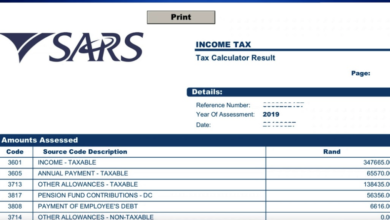
South Africa, often referred to as the Rainbow Nation, is a country of immense potential and rich diversity. However, like many nations, it faces a multitude of economic challenges that have shaped its trajectory over the years. In this article, we will explore some of the key economic issues in South Africa and consider the prospects for its economic future.
Income Inequality
One of the most pressing economic issues in South Africa is income inequality. Despite the end of apartheid in the early 1990s, the country continues to grapple with stark disparities in income and wealth. The legacy of apartheid, which enforced racial segregation and discrimination, has left a lasting impact on economic disparities. The gap between the rich and poor remains vast, with a significant portion of the population living in poverty.
Addressing income inequality is crucial for social cohesion and long-term economic stability. Initiatives to provide quality education, healthcare, and social services to marginalized communities are essential to narrowing this gap.
Unemployment
South Africa has one of the highest unemployment rates in the world. The youth unemployment rate, in particular, is alarmingly high. The COVID-19 pandemic exacerbated this problem, leading to widespread job losses across various sectors of the economy.
To combat unemployment, the government must focus on policies that stimulate job creation, support small and medium-sized enterprises (SMEs), and invest in skills development and vocational training programs. A stronger emphasis on entrepreneurship and innovation can also contribute to job growth.
Corruption and Governance
Corruption has been a persistent issue in South Africa, eroding trust in government institutions and hindering economic progress. Scandals involving high-ranking officials and allegations of corruption have made headlines, damaging both the country’s reputation and its ability to attract foreign investment.
Efforts to combat corruption and improve governance are essential for economic growth. Strengthening institutions, increasing transparency, and holding corrupt individuals accountable are steps in the right direction.
Infrastructure Development
South Africa’s infrastructure is in need of significant investment and modernization. Inadequate infrastructure can hamper economic growth by limiting access to markets, hindering transportation, and reducing productivity.
Investing in infrastructure projects, such as transportation networks, energy generation, and telecommunications, can help boost economic growth, create jobs, and attract foreign investors. Public-private partnerships can be instrumental in financing and implementing these projects.
Mining Sector Challenges
The mining sector has traditionally been a cornerstone of South Africa’s economy, but it faces various challenges. Labor disputes, regulatory uncertainties, and declining commodity prices have impacted the sector’s performance.
To revitalize the mining industry, South Africa must create a stable regulatory environment, encourage responsible mining practices, and promote value addition within the sector to retain a larger share of the value chain.
Global Economic Uncertainty
South Africa is not immune to global economic trends and uncertainties. Trade tensions, fluctuations in commodity prices, and shifts in global demand can impact the country’s export-oriented industries, such as agriculture and manufacturing.
Diversifying the economy and reducing dependence on a few key sectors can help mitigate the risks associated with global economic volatility.
Conclusion
South Africa faces a complex web of economic challenges that require multi-faceted solutions. While these challenges are formidable, the country also possesses significant potential for growth and development. Addressing income inequality, unemployment, corruption, infrastructure deficits, mining sector issues, and global economic uncertainty will be pivotal in shaping South Africa’s economic future.
Government policies that prioritize social inclusion, job creation, good governance, and infrastructure development, coupled with private sector investments and international collaboration, can help unlock South Africa’s vast economic potential and create a more prosperous and equitable society. By tackling these challenges head-on, South Africa can continue its journey towards a brighter economic future.




